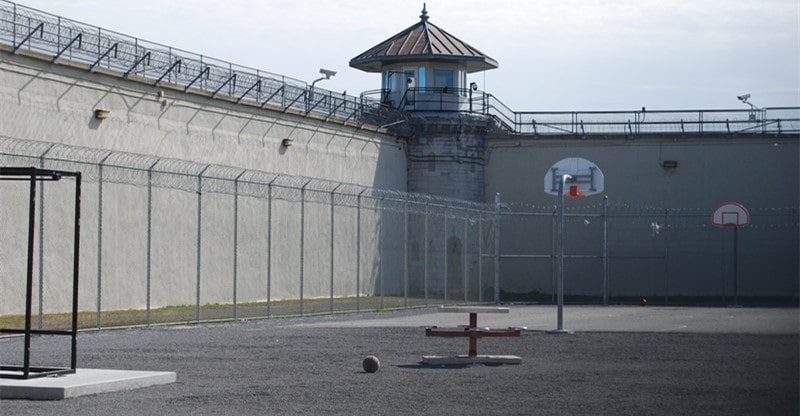What Things Work In Your Favor If You’re In Prison
Life behind bars is a challenging experience, but certain aspects can work in your favor if you find yourself incarcerated. While no one wants to be in prison, it’s essential to make the most of the situation and use your time wisely. In this blog post, we will explore the various factors and opportunities that can be in your favor if you’re in prison, helping you to make the best of a challenging situation.
Participation in In-Prison Programs
One of the most significant opportunities for inmates is participation in in-prison programs. These programs can vary widely, ranging from educational courses to vocational training and therapy sessions. This means that eligible inmates can earn additional time off their sentence by engaging in these programs, which not only reduces their overall time in prison but also equips them with valuable skills and knowledge for their eventual reintegration into society.
If you want to know about these programs, you may book a consultation with federal prison consultants. Such programs can provide a path to personal growth, skill development, and rehabilitation.
Education Behind Bars
Education is a powerful tool that can work in your favor when incarcerated. Many prisons offer educational programs, including high school equivalency classes and college courses. By obtaining a diploma or degree, inmates increase their chances of securing employment upon release. Additionally, higher education can foster personal growth and stimulate a sense of accomplishment. In some cases, it might even lead to earlier parole.
Building Meaningful Relationships
Building meaningful relationships while incarcerated can be a vital aspect of making the best of your time in prison. The shared experience of confinement can foster connections that transcend the prison walls. Inmates can find mentors who offer guidance, friends who provide support, or allies who ensure safety within the prison environment. These relationships are not only crucial for emotional and psychological well-being but can also make your time behind bars more bearable.
In addition, the positive connections you form during your incarceration can continue to provide support and a sense of belonging even after you’re released, helping with the reintegration process into society.
Artistic Expression and Self-Discovery
Artistic expression and self-discovery in the confines of a prison can be transformative. Whether through the stroke of a brush on canvas, the flow of words on paper, or the rhythm of a musical note, inmates often find solace and release in creative pursuits. Artistic expression not only offers an escape from the harsh realities of prison life but also serves as a medium for self-discovery.
In the process of creating art, individuals may uncover hidden talents, explore their emotions, and gain a deeper understanding of themselves. This process of self-discovery can be a catalyst for personal growth and rehabilitation, ultimately working in favor of inmates as they strive to rebuild their lives and identities within the restrictive prison environment. Moreover, for those who participate in such programs, it creates a unique opportunity to both serve their time and enhance their well-being.
Physical Fitness and Well-Being
Physical fitness and well-being are integral aspects of life, even within the confines of a prison environment. In prison, engaging in regular physical exercise is not just a way to maintain physical health, but it also plays a crucial role in the mental and emotional well-being of inmates. Exercise routines, which often include activities like jogging, calisthenics, or weightlifting, provide an outlet for stress, frustration, and pent-up energy.
Beyond the immediate physical benefits, such activities contribute to improved mood, increased self-esteem, and better overall mental health. Additionally, staying physically active can enhance sleep quality, boost cognitive function, and reduce the risk of chronic illnesses.
In the challenging environment of prison, focusing on physical fitness becomes a positive coping mechanism, offering a sense of routine and discipline. It’s not just about building muscles; it’s about building resilience, both mentally and physically, which is essential for navigating the difficulties of prison life and preparing for a successful reintegration into society.
Learning Life Skills
Learning life skills while in prison is a crucial aspect that can work in your favor during your incarceration. These skills, which encompass everything from financial literacy and conflict resolution to time management and communication, play a pivotal role in preparing inmates for life beyond the prison walls.
By actively participating in life skills workshops and training, you not only gain essential knowledge but also improve your chances of successful reintegration into society upon your release. These skills empower you to make responsible decisions, maintain healthy relationships, and effectively manage your post-prison life, ultimately reducing the likelihood of returning to the correctional system.
Positive Behavior and Disciplinary Record
Positive behavior and a clean disciplinary record are crucial aspects that can work in your favor while serving time in prison. Maintaining a positive behavioral record means following prison rules and regulations, avoiding conflicts, and actively participating in rehabilitation and educational programs. By doing so, you not only create a safer and more constructive environment for yourself and your fellow inmates but also build a strong case for parole or early release.
Work Assignments and Vocational Training
Work assignments and vocational training programs play a vital role in an inmate’s life within the prison system. Work assignments often involve tasks within the correctional facility itself, ranging from maintenance and food services to administrative roles. These assignments serve a dual purpose: they help inmates pass the time productively, and they provide essential job skills that can be valuable upon release.
Vocational training, on the other hand, offers inmates the opportunity to gain expertise in specific trades, such as carpentry, plumbing, or culinary arts. These skills can significantly enhance an individual’s employability prospects once they re-enter society, reducing the chances of recidivism. Moreover, excelling in these work assignments or vocational training programs is a powerful incentive for personal development and a shorter stay behind bars.
While serving time in prison is undoubtedly a challenging experience, several factors and opportunities can work in your favor. Participation in in-prison programs, focusing on education, building relationships, expressing creativity, maintaining physical well-being, learning life skills, demonstrating positive behavior, and engaging in work assignments or vocational training are all ways to make the most of your time behind bars.
By taking advantage of these opportunities, you not only improve your quality of life in prison but also increase your chances of successful reintegration into society upon your release. Remember, it’s essential to use your time wisely and strive for personal growth, no matter where you are.



